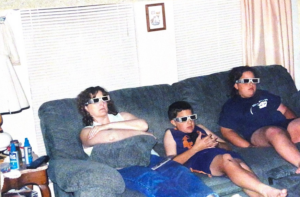Bridgette Bates
Last night a group of independent producers and directors gathered in the mountains of Utah to kick-off Sundance Institute’s second annual Creative Producing Summit. ‘Creative’ immediately earned its keep as Reed Hastings, CEO and co-founder of Netflix, gave his keynote address crediting Netflix’s success to its creative entrepreneurial nature. Along with Sundance Institute Executive Director Keri Putnam and Netflix Chief Content Officer Ted Sarandos, a conversation ignited about how independent film distribution continues to evolve with new possibilities and challenges looming around the corner. Signaling perhaps the metaphor of how far the indie film business has shifted, it was notable to observe that in today’s new world order, it was not always clear who was at the Creative Producing Summit to learn and who to teach. A dynamic Q&A followed with hands raised from indie film newbies to veterans John Sloss, Craig Emanuel, Peter Broderick, Josh Braun, and Ondi Timoner—all in the same boat of navigating the unchartered waters of the future of distribution. What was clear was the excitement of opportunities for film that never existed before. Filmmakers listen up: Netflix says it’s not as hard as you think to get your feature available to their 15 million subscribers.
Netflix’s success began with the humble beginnings of a living room office and co-founders licking stamps, as Reed Hastings replayed Netflix’s conception, “It started because I got a $40 late fee on a rental.” Annoyed with the mid-nineties model for watching movies at home, Hastings found inspiration in an effective system for home delivery while living in England. He cited how each day families simply sit out their empty milk bottles on their doorstep to be refilled—it could be one or three or none. Once Hastings applied this “delivery upon demand” to video and confirmed a DVD could withstand being mailed in the U.S. Postal System, Netflix began the journey of bringing movies to homes everywhere.
Finding the right audience for the right film is one of the biggest issues filmmakers and producers face with traditional theatre distributors. Netflix is striving to bridge the gap of connecting a niche audience with a niche film by applying algorithms to promote user preferred content. So when Producing Summit Fellow Anthony Deptula asked “How can indie filmmakers use Netflix?” Ted Sarandos responded, “We don’t need all 15 million users to see a film for it to work, we only need the right 100 to see it and it can build.” His tip was to spread the word of your film with your core base and have them “save” your film in their Netflix queues. When enough people save a title, Netflix buys and puts into circulation an appropriate number of copies, and as more people watch the film it gains traction on the “You Might Also Like” sections. More people with similar tastes rent the film, and Netflix buys more copies of the film with the increase of demand.
This system has clearly been working to help small independent and foreign films reach audiences beyond their limited runs. But Hastings was quick to remind us that global distribution is still an uncracked nut due to licensing practices and regulatory laws, for example, the iTunes video store is only available in five countries around the world. Even with these uncertainties, Hastings is confident about one thing, “In the next 10 years it will absolutely be a completely streaming on-demand world.” Netflix will test the future very soon in Canada by launching a streaming-only version of Netflix.
As the future of film and technology intersect and accelerate, there are many questions left to be answered. Some as obvious as how to make subtitles work with streaming, some as untenable as piracy. The Creative Producers Summit opened with a good case and point: through ingenuity Netflix has changed the way we see films. Now if the collective brain power of the film industry can tap into a creative solution for global distribution, the whole wide world may start to see things differently.
Click here to read about the closing night remarks at the Creative Producers Summit.




